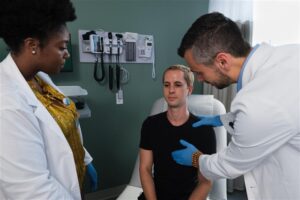Kenya Launches Soil Health Development Program to Address Soil Acidity and Boost Agricultural Productivity
In a bid to tackle soil acidity and improve agricultural productivity, key stakeholders in Kenya’s agricultural sector convened for a workshop to launch a scoping study aimed at identifying barriers to the commercial rollout of a national liming program. The workshop, part of the Kenya Soil Health Development Program, seeks to develop a cohesive strategy to introduce lime products to the market and create a scalable marketing approach that will drive significant uptake among farmers.
Soil acidity is a major challenge for Kenyan farmers, with studies showing that over 65% of the country’s arable land is affected. This acidic soil prevents crops from efficiently absorbing nutrients, including those from fertilizers, resulting in lower yields and contributing to the growing threat of food insecurity. According to Mr. Henry Kinyua, Deputy Team Leader of the Kenya Soil Health Development Program, “The inability of crops to extract nutrients from the soil limits agricultural productivity, but research shows that soil acidity can be reversed through the application of lime.”
Christian Witt, Senior Program Officer for Soil Health at the Bill & Melinda Gates Foundation, echoed the importance of addressing soil acidity in Kenya and the wider East African region. “Soil acidification is a natural process that occurs over time, but when it becomes too severe, it limits crop growth and reduces the effectiveness of fertilizers. We are exploring the best public and private sector interventions to combat this issue, particularly for small-scale farmers, while also aiming to boost the agricultural sector’s contribution to the economy,” said Witt.
Sheila Keino, Executive Director of Sustain Africa, emphasized the urgency of addressing the problem, noting that the scoping study would explore effective strategies for rehabilitating acidic soils across the country. “We are losing yields due to soil acidity, and the work we are undertaking over the next three months will help us understand how to reverse soil pH and enable farmers to achieve better yields,” Keino said. She also highlighted the significance of the Nairobi Declaration, which calls for the rehabilitation of at least 30% of Africa’s soils. “Kenya must be at the forefront of this initiative, and liming is a critical solution.”
The scoping study is the first step in a larger program that aims to pilot liming on at least 100,000 acres in two of Kenya’s most affected counties. The initiative is supported by the Government of Kenya, Sustain Africa, and the Bill & Melinda Gates Foundation. As the country works toward restoring soil health, the program is expected to have a significant impact on farmers’ productivity and, by extension, national food security.
The workshop marks the beginning of a concerted effort to address one of Kenya’s most pressing agricultural challenges, with long-term goals to improve soil health, increase crop yields, and reduce food insecurity across the region.





